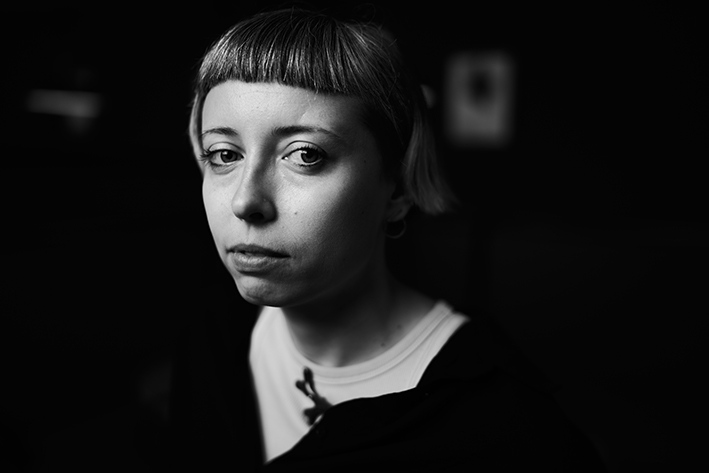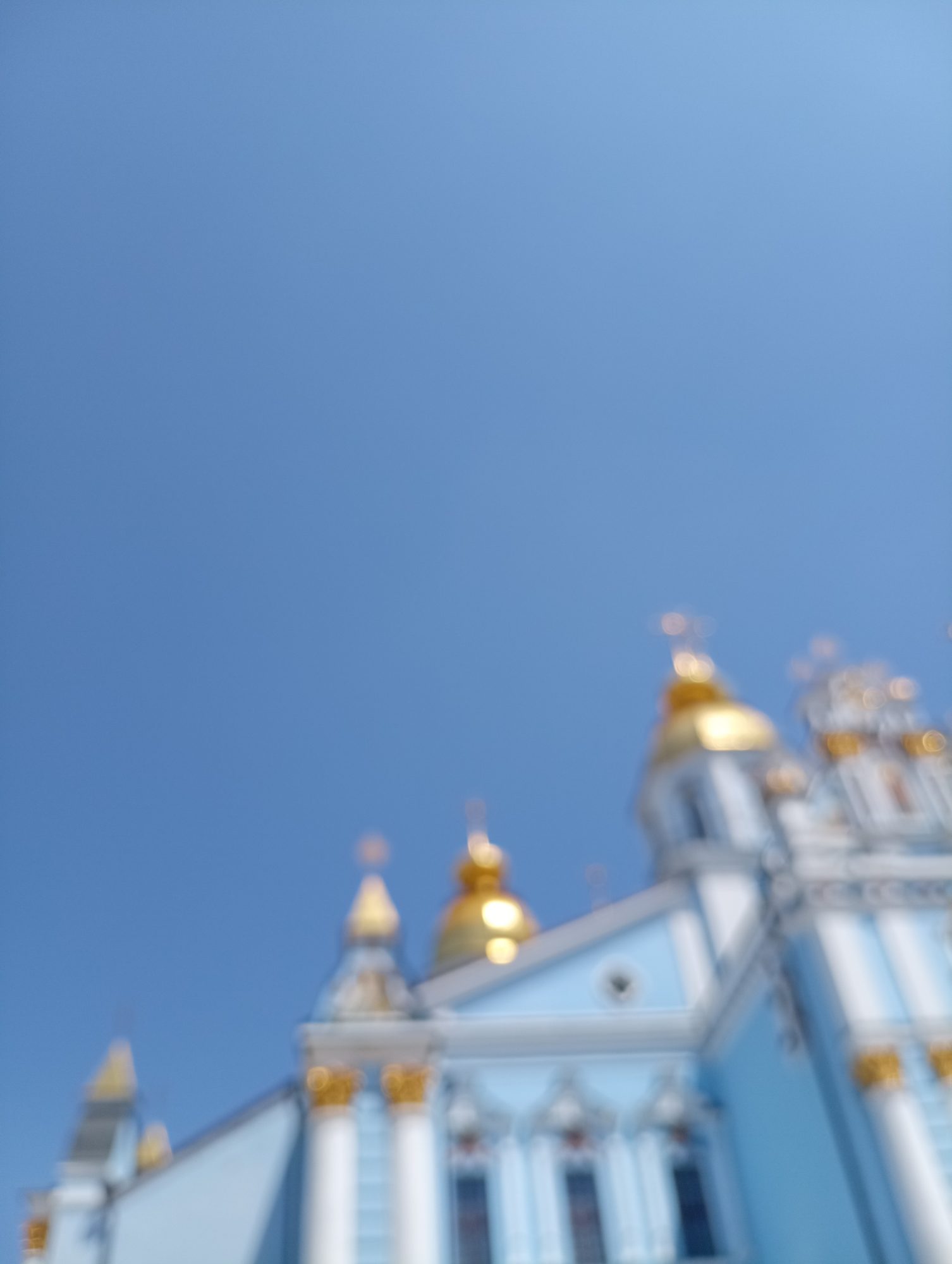Як це взагалі можливо?
На другий рік життя всередині повномасштабної війни росії проти України мене вже майже не дивують новини про вчинені росіянами звірства, цифри загиблих і звуки сирен. Та я не перестаю дивуватись цим різним реальностям, які накладаються. Як це взагалі можливо?
Ось я на одному з найбільших українських літературних фестивалів, який відбувається у Києві під час війни. Ми всі щасливі бачитись і обіймаємось, як потім хтось правдиво скаже, наче востаннє. За чотири дні під час фестивалю сирена про повітряну тривогу не звучить жодного разу й може здатися, що це нормальне життя. Але чи не кожна подія — це розмова про війну, щемкі спогади про загиблих і зізнання поламаних службою у війську письменників про те, що ніякого літературного майбутнього вони для себе не бачать, як і в принципі майбутнього.
З Києва я повертаюсь у Кам’янець-Подільський, де ми проводимо резиденцію для поетів і перекладачів поезії. У день, коли я готуюсь до модерації події про поезію з Бучі, ми дізнаємося, що наша колега і подруга, письменниця Вікторія Амеліна важко поранена внаслідок обстрілу Краматорська.
За кілька днів ми дізнаємося, що Віка померла. Як це так, ми ж щойно обіймалися на фестивалі? Як це взагалі можливо?
Подруга пише мені, що завтра у Києві відбудеться прощання, а післязавтра — поховання у Львові. Коли я думаю, куди логістично зручніше поїхати, дивлюсь розклади потягів, яка дорога займе менше часу, які зустрічі я ще зможу призначити, чи витримаю я кладовище… мене охоплює жах. Як можна в одній думці поруч зі словом “смерть” ставити слово “логістика”?
Я їду в Київ. Прощання відбувається у Михайлівському Золотоверхому соборі. Тут ми бачимось майже тією самою компанією, що і на нещодавньому фестивалі. Всі свої. Ми плачемо і знову обіймаємось так міцно, ніби востаннє. Під час служби я постійно запитую себе: хто наступний? І від цієї думки водночас злісно і моторошно. Що це за таке погане кіно, в якому ми раптом усі опинилися?
Я не віруюча, але виходячи з храму, чомусь хочу зробити фото його фасаду, що майже зливається з небесною блакиттю. Я досі плачу, тому фото виходить розмитим, але я вирішую, що саме так і хочу зафіксувати цю мить.
Ввечері ми з друзями сидимо на галявині в найпрекраснішому районі старого Києва. Ми п’ємо вино, куримо, граємося з собакою і загалом виглядаємо досить безтурботно. Аж раптом після чергового жарту й сміху Оленка каже: а ми точно сьогодні зранку попрощались з нашою подругою? Ми на мить завмираємо, і я не знаю, як один день може вміщати в собі стільки реальностей.
Як це взагалі можливо?
Wie ist das überhaupt möglich?
Im zweiten Jahr Leben im groß angelegten Krieg Russlands gegen die Ukraine bin ich fast nicht überrascht von den Nachrichten über die Gräueltaten der Russen, die Zahl der Todesopfer und den Alarm der Sirenen. Aber ich höre nicht auf, mich über diese verschiedenen Realitäten zu wundern, die sich überschneiden. Wie ist das überhaupt möglich?
Ich bin auf einem der größten ukrainischen Literaturfestivals, das während des Krieges in Kyjiw stattfindet. Wir sind alle froh, uns zu sehen und umarmen uns, als ob es das letzte Mal wäre, wie es später jemand wahrheitsgemäß sagt. Vier Tage lang während des Festivals ertönt die Luftschutzsirene kein einziges Mal und es scheint, es herrscht ein normales Leben. Aber ist nicht fast jede Veranstaltung ein Gespräch über den Krieg, schmerzhaftes Gedenken der Toten und die Anerkennung von Schriftstellern, die durch den Dienst in der Armee gebrochen wurden, dass sie keine literarische Zukunft für sich selbst sehen, sowie prinzipiell keine Zukunft an sich.
Von Kyjiw kehre ich nach Kamjanez-Podilskij zurück, wo wir eine Residenz für LyrikerInnen und Lyrik-ÜbersetzerInnen haben. An dem Tag, als ich mich auf die Moderation einer Veranstaltung über Dichtung aus Bucha vorbereite, erfahren wir, dass unsere Kollegin und Freundin, die Schriftstellerin Viktoria Amelina, bei dem Beschuss von Kramatorsk schwer verletzt wurde.
Ein paar Tage später erfahren wir, dass Vika gestorben ist. Wie ist das möglich, wir haben uns gerade erst auf einem Festival umarmt? Wie ist das überhaupt möglich?
Eine Freundin schreibt mir, morgen gebe es in Kyjiw eine Verabschiedung, und übermorgen die Beerdigung in Lwiw. Wenn ich darüber nachdenke, wo es logistisch praktischer ist, hinzufahren, schaue ich mir die Zugfahrpläne an, welcher Weg weniger Zeit in Anspruch nimmt, wen ich noch treffen kann, ob ich den Friedhof aushalte… Mich packt das Entsetzen. Wie kann man das Wort „Logistik“ neben dem Wort „Tod“ in einen Satz stellen?
Ich fahre nach Kyjiw. Die Verabschiedung findet in der Goldkuppeligen Kathedrale des St. Michaelsklosters statt. Hier sehen wir fast die gleiche Gesellschaft wie neulich bei dem Festival. Alle für sich. Wir weinen und umarmen uns wieder so fest, als wäre es das letzte Mal. Während des Gottesdienstes frage ich mich immer wieder: Wer ist der Nächste? Und dieser Gedanke macht mich gleichzeitig wütend und ängstlich. In was für einem schlechten Film stecken wir plötzlich?
Ich bin nicht gläubig, aber beim Verlassen des Gotteshauses, möchte ich aus irgendeinem Grund ein Foto von seiner Fassade machen, die fast mit dem Himmelblau verschmilzt. Ich weine immer noch, sodass das Foto unscharf wird, aber ich beschließe für mich, dann eben diesen Moment festhalten zu wollen.
Am Abend sitzen meine Freunde und ich auf einem Rasen in der schönsten Gegend des alten Kyjiw. Wir trinken Wein, rauchen, spielen mit einem Hund und sehen irgendwie ziemlich sorglos aus. Plötzlich, nach einem weiteren Witz und Gelächter, sagt Olenka: Haben wir nicht erst heute Morgen von unserer Freundin Abschied genommen? Wir verstummen für einen Moment. Ich weiß nicht, wie in einen einzigen Tag so viele Realitäten passen können.
Wie ist das überhaupt möglich?
Übersetzung: Michael Pietrucha
How Is This Even Possible?
In this second year of living inside russia’s full-scale war on Ukraine, news of atrocities committed by russians, the numbers of dead, or the sounds of sirens barely surprises me. But I never cease to be amazed by our various, overlapping realities. How is this even possible?
Here I am at one of the largest Ukrainian literary festivals, taking place in Kyiv during the war. We are all happy to see each other and hug like—as someone will later remark—it might be the last time. Over the four days of the festival, the air raid sirens don’t go off once and life almost seems normal. But practically every event is a conversation about the war, painful memories of people who’ve died, or confessions of writers broken by fighting in the army that they see no future in literature for themselves, or much of a future at all.
I return from Kyiv to Kamianets-Podilskyi where we have a residency for poets and translators of poetry. On the day that I’m preparing to moderate an event about poetry from Bucha, we learn that our colleague and friend, the writer Victoria Amelina, is seriously wounded as a result of shelling in Kramatorsk.
A few days later we find out that Vika has died. How? We just hugged each other at the festival. How is this even possible?
My friend writes that the funeral will be in Kyiv tomorrow and the burial in Lviv the day after that. When I think about where it will be easier to get to logistically, study the train schedules, figure out which route is faster, who else I can meet with, if I’ll be able to bear the cemetery. . . I’m overcome by horror. How can the word “death” exist alongside the word “logistics” in a single thought?
I go to Kyiv. The funeral takes place in St. Michael’s Golden-Domed Monastery. It’s basically all the same people that were just at the festival. All ours. We cry and hug each other again—tightly, like it might be the last time. During the service I’m constantly asking myself: who’s next? This thought makes me angry and disturbed at the same time. What is this bad movie we’ve all suddenly found ourselves in?
I’m not religious, but leaving the church, I feel a desire to photograph the façade, which is practically merging with the azure of the sky. I’m still crying, so the photo comes out blurry, but I decide that is precisely how I wanted to capture the moment.
In the evening, my friends and I sit in a park in the most beautiful part of old Kyiv. We drink wine, smoke, play with a dog, and generally look quite carefree. Suddenly after another joke and some more laughter, Olenka says, “Did we really say goodbye to our friend this morning?” We all freeze for a moment, and I don’t understand how one day could contain so many realities.
How is this even possible?
Translation: Ali Kinsella
Share
-
09 Dienstag
19:30 UhrHausgäste im August 2022 (I)
Olga Bragina, Anna Gschnitzer, Demian Lienhard und Tania Rodionova in Lesung und Gespräch

Veranstaltungen mit Tania Rodionova
2022
August











